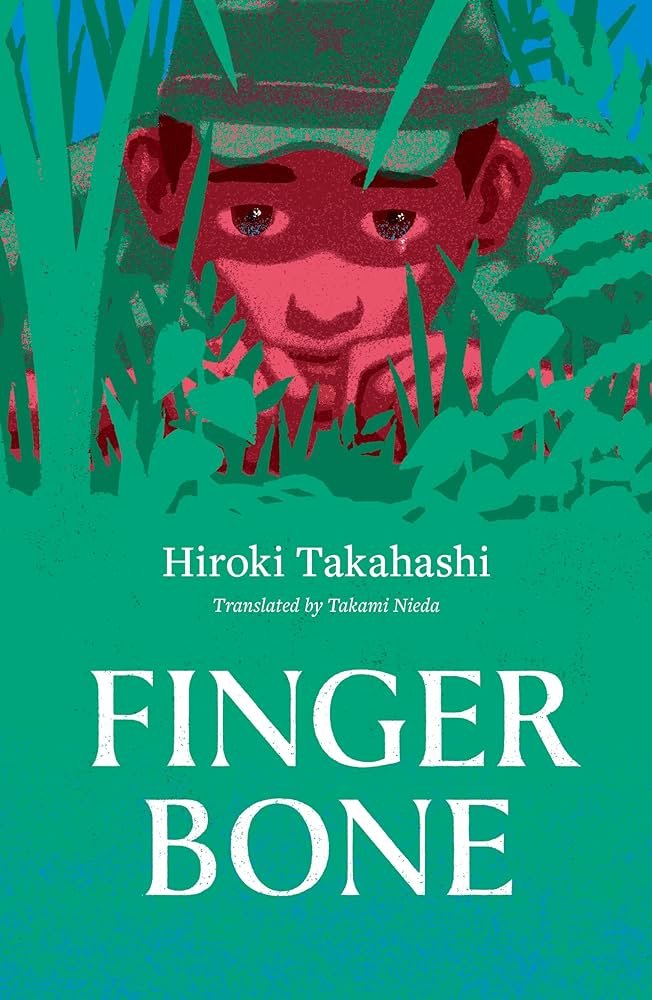Finger Bone by Hiroki Takahashi, translated by Takami Nieda (Honford Star)
Hiroki Takahashi is a Japanese writer who was born in Towada City in Aomori Prefecture. Finger Bone is his first novel. It was first published in Japan with the title 指の骨 (Yubi no Hone) in 2015 by Shinchosha Publishing and was nominated for the Akutagawa Prize, Japan’s most prestigious literary award. Takahashi would win the Prize in 2018 for his book 送り火 (Okuribi).
Finger Bone is a war novel. Most war novels are often about battles or covert operations. The protagonist usually does something heroic and is rewarded for his efforts in helping to win the war. They are rarely told from the perspective of the losing country’s soldiers. This is a story told in the first person by an unnamed Japanese soldier.
The soldier is stationed on the island of Papua New Guinea in 1942. The Imperial Japanese Army is on the retreat but since the soldier has no radio, he still believes that Japan is winning the war. In his pocket, he carries the finger bones of a dead comrade. However, on his march to his next destination he is wounded and sent to a field hospital.
Before the soldier makes it to the field hospital, he comes to another facility built in a palm grove. There are men sleeping on stretchers suffering from the effects of malaria. Some of them might already be dead .
Once he makes it to the field hospital, he is witness to what he thinks is kind of cruel. Whenever the medics make their rounds and one of the patients doesn’t answer, a medic slides a piece of wood under the dead soldier’s hand and cuts off his finger.
Another soldier tells him, “That’s a lucky man to have his finger taken for his family like that”. He’s told, “Die in the jungle all alone, and all the family gets back home is three stones”.
As the soldier recovers, he’s able to walk around. Sometimes he and two of his comrades walk a little ways away from the hospital, always keeping an eye out for the enemy. They are confronted by a black man one time, but the man turns out to be a native who isn’t hostile to the soldiers. One of his comrades is able to speak a bit of the native language and they’re taken to the native’s village.
However, the second time they see one of the natives, the man doesn’t speak or exchange words. The unnamed soldier doesn’t know why and shortly after that incident, the soldiers at the field hospital get their orders to move. That is when the unnamed soldier realized that Japan is losing the war and that most of the island is under Allied control.
The soldier wants to keep his promise to his comrade and is determined to take the finger bone he has in his pocket to his friend’s home in Japan. Will the soldier survive the war? Will he be able to keep his promise?
It’s often been said that “in war, no one wins”. This book illustrates that point. Those soldiers who died serving their country had families. Well, so does the enemy. It’s a sad fact that Japan’s militarism during World War 2 led to untold suffering for their soldiers, and for the soldiers fighting against them.
Unfortunately, as long as there are people with different values and ways of thinking, war seems to be inevitable. I wish it weren’t true but conflicts continue in places such as the Middle East and in Central Asia. North Korea testing their ICBM missiles is no light matter either.
If only every country in the world could follow the message of John Lennon’s song “Imagine”, the world might be a better place. ~Ernie Hoyt
